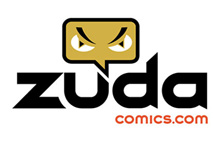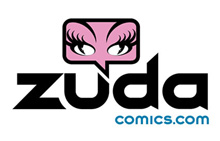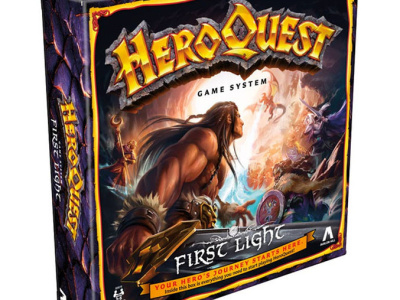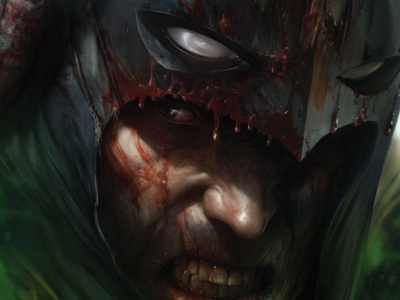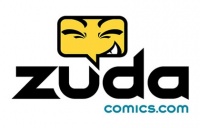
DC will launch a Webcomics site, Zudacomics.com, which will display independently created intellectual property. The first comic content will go up on the site in October.
DC Director of Creative Services Ron Perazza, in an interview with ICv2, described the business model for the site as 'a long game for DC.' Although the site will carry advertising, its primary purpose will be to develop new intellectual property which DC can then use in its publishing, licensing, and other operations. Publishing could be in either single title collections, for which it would take a considerable amount of time to accumulate enough material, or in anthologies of multiple Zuda titles into a single volume. 'It may take years for one of these IPs to develop into something more than a Webcomic,' Perazza said, 'but that doesn't mean we shouldn't invest the time and effort to grow that IP.'
Ownership of the IP will be shared, with 'a deal that's consistent with the other types of deals we offer for new talent for new properties,' Perazza told us.
Top Webcomics that have made the migration to print are Fred Gallagher's Megatokyo, currently published by DC after several other stops, and Penny Arcade, for which Dark Horse is the publisher.
The startup of the site begins later this month with a preview site; continues through August when the policies for creator submissions will be announced; launches with comic content in October with an initial batch of creative submissions selected by Perazza and Kwanza Johnson, DC Comics Online Editor; and finally begins publishing 52-episode series by the winner(s) of a competition between those initial submissions in November.
This process -- Webcomics submissions, selection of by DC editors, a competition involving user ratings, and winners that will then become regular features of the site -- will then repeat. DC editors can also select some instant winners each year, which will become regular features without going through the competition stage. Zuda will pay instant winners, competition winners, and competition finalists.
The format for presentation of the Webcomics will be in a 4:3 aspect ratio so episodes can be displayed in a single screen. Beyond that general shape, there are no restrictions on format; comics published on the site could be single panel gags, newspaper-style strips, or more elaborate adventure stories similar to those told in comic periodicals.
DC would not define a target demographic for the site, saying only that it's 'everyone on the Internet.' In its announcement, DC listed humor, romance, science fiction, fantasy, and superheroes as examples of the breadth of its genre options. As a reflection of this breadth of content, there will be numerous expressions of the site's logo, each involving a slightly different set of comic eyes. The look, and this new Webcomic initiative, are in the portfolio of DC Senior Vice President Richard Bruning.
Asked whether they would have any guidelines for creators in terms of age-appropriateness, Perazza indicated that they would not. 'Developing technology that connects our audience with material that they feel is appropriate, stuff they want to see or don't want to see or - in the case of minors shouldn't see -- is comparatively easy,' he said. 'Quality is much more difficult.'
'Quality' was also how Perazza answered a question about how DC would differentiate itself from other Webcomics sites. 'One of the things that make what we're doing very distinct is the quality standards that DC has, and we're going to be very involved with the community,' he said.
DC's business model is somewhat different from that of DrunkDuck.com, which was acquired by Platinum Studios last year (see 'Platinum Studios Acquires DrunkDuck.com'). Platinum is using DrunkDuck as a way to promote its print books by releasing Web versions in advance of print release, as well as a source of intellectual property that can be used for other purposes. Both Zuda and Drunk Duck sell advertising. Drunk Duck does not share ad revenue with Webcomics creastors, but does share licensing revenue.
At the time of Platinum's acquisition last September, Drunk Duck was getting one million unique visitors a month, according to the announcement. DC plans to use advertising on its sister sites, as well as public relations and other marketing tools, to acquire traffic for Zudacomics.
Tokyopop offers online manga content, along with user generated comic content, and community features, on its redesigned Website launched last year (see 'New Tokyopop Website Offers Exclusive Manga').
Netcomics uses a combination of subscription and advertising revenues for its
DC has also made an external investment in electronic delivery of comics in recent weeks, via a venture investment in a Japanese company that plans to release comics for cellphones and the Internet as a way to develop new IP (see 'DC Goes Mobile').
The move online by larger companies is also not limited to comics; Hasbro subsidiary Wizards of the Coast recently announced a major new online initiative to offer online games, build a community of gamers, and serve as a way to recruit new players for its real world games (see 'Gleemax: WotC's New Online Initiative'). Like Gleemax, Zudacomics will include many community features, such as profile pages and blogs.
While the business models of the pop culture companies above and of companies in other categories (such as those offering online delivery of anime, for example) vary, the common element of all is the new competition to use Internet delivery of content and the building of online communities to build brands and revenues.



